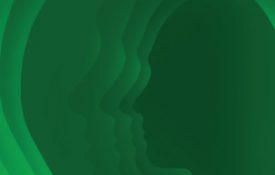-
Managing a Polarized Workforce
One of the most difficult challenges leaders of all organizations face is managing diverse perspectives. Much has been written on the benefits for teams and organizations of engaging with opposing views, fostering productive disagreement, and creating “teams of rivals.” Yet anyone who has been involved in such work knows that disagreements on strongly held opinions, often related to personal identity, are always tough and frequently destructive. That’s truer today than ever before, as topics from the #MeToo and Black Lives Matter movements to environmentalism and remote work have elevated both the need for thoughtful discussion and the desire to avoid it.
-
How Did This Many Deaths Become Normal?
The united states reported more deaths from COVID-19 last Friday than deaths from Hurricane Katrina, more on any two recent weekdays than deaths during the 9/11 terrorist attacks, more last month than deaths from flu in a bad season, and more in two years than deaths from HIV during the four decades of the AIDS epidemic. At least 953,000 Americans have died from COVID, and the true toll is likely even higher because many deaths went uncounted. COVID is now the third leading cause of death in the U.S., after only heart disease and cancer, which are both catchall terms for many distinct diseases. The sheer scale of the tragedy strains the moral imagination.
-

New Content From Perspectives on Psychological Science
A sample of articles on college campus sexual assault, empathy, blame and retribution, implicit bias, mental health during COVID-19, security and freedom trade-off, consent, collectivist and independent values, and the quest for significance and social worth. Visit Page
-

The ‘Equal-Opportunity Jerk’ Defense: Rudeness Can Obfuscate Gender Bias
If a guy acts like a jerk to other men, he may seem less sexist than he actually is, according to new research in the journal Psychological Science. Visit Page
-

New Content From Current Directions in Psychological Science
A sample of articles on social media, language comprehension, intelligence (and other variables) tracking, human movement patterns data, early language learning and auditory experiences, personality change, and digital games and skill acquisition. Visit Page
-

Constellations Across Cultures: How Our Visual Systems Pick Out Patterns in the Night Sky
The Big Dipper, Orion, and the Pleiades are just a few of the many recognizable star patterns in the night sky. New research published in the journal Psychological Science reveals that our visual processing system may explain the striking commonality of constellations across cultures. Visit Page

